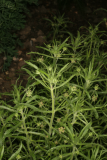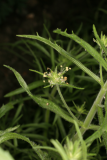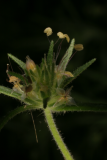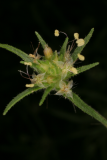Additional notes (click to expand)
Medicinal
Culpeper: ‘The mucilage of the seed, made with rose water, and a little sugar candy put thereto is very good in all hot agues and burning fevers, and other inflammations to cool the thirst ...’
Culpeper, N. (1652). The English Physitian. London.
The husk is used as a dietary fibre for relief of "symptoms constipation and mild diarrhea and occasionally as a food thickener. Research has shown lowering of blood cholesterol levels in people with elevated cholesterol,[1] and lowering of blood glucose levels in people with type 2 diabetes.[2]
The plant from which the seeds are extracted tolerates dry and cool climates and is mainly cultivated in northern India". Wikipedia https://en.wikipedia.org/wiki/Psyllium (2018). See for more details.
https://en.wikipedia.org/wiki/Psyllium https://en.wikipedia.org/wiki/Psyllium
Medicinal uses
Uses supported by clinical data
A bulk-forming laxative used therapeutically for restoring and maintaining
bowel regularity (15, 17–26). Treatment of chronic constipation, temporary
constipation due to illness or pregnancy, irritable bowel syndrome
and constipation related to duodenal ulcer or diverticulitis (18, 27). Also
indicated for stool softening in the case of haemorrhoids, or after anorectal
surgery (18, 20). As a dietary supplement in the management of hypercholesterolaemia,
to reduce the risk of coronary heart disease (28), and
reduce the increase in blood sugar levels after eating (24).
Uses described in pharmacopoeias and well established documents
Short-term use for the symptomatic treatment of diarrhoea of various
etiologies (29–31).
Uses described in traditional medicine
As an expectorant, antitussive and diuretic. Treatment of rheumatism,
gout, glandular swelling and bronchitis (5, 8).
Contraindications
Testa Plantaginis should not be used by patients with faecal impaction,
undiagnosed abdominal symptoms, abdominal pain, nausea or vomiting
unless advised by their health-care provider. Testa Plantaginis is also contraindicated
following any sudden change in bowel habits that persists for
more than 2 weeks, in rectal bleeding or failure to defecate following use
of a laxative, and in patients with constrictions of the gastrointestinal
tract, potential or existing intestinal blockage, megacolon, diabetes mellitus
that is diffi cult to regulate, or known hypersensitivity to the seed coats
(14, 22).
WHO Monographs on Selected Medicinal Plants. Volume 3. 2007. WHO, Geneva
Nomenclature
Synonym of Plantago indica (10/12/20)
(fda)
Plants of the World online, Kew Science http://www.plantsoftheworldonline.org/taxon/urn:lsid:ipni.org:names:685262-1
link
Other use
Notes: Dioscorides called it Psullion and recommended it for arthritis, oedema, headaches, erysipelas, and ‘They say that being brought into the house, green, doth not suffer fleas to breed’ which property is clearly the origin of the English name ‘Fleawort’.
Gunther, R.T.. (1938). The Greek Herbal of Dioscorides ... Englished by John Goodyear.
Geographical distribution
- Africa, Northern Africa
- Asia-Temperate
- Asia-Tropical, Indian Subcontinent, Pakistan
- Europe
Plantago psyllium L.
Family: PLANTAGINACEAEGenus: Plantago
Species: psyllium L.
Common names: Psyllium
Pharmacopoeia Londinensis name: Psyllium
Distribution summary: Africa, Eurasia
Habit: Annual
Garden status: Not currently grown
Reason for growing: Medicinal
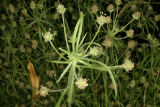
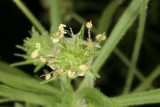
.JPG)
